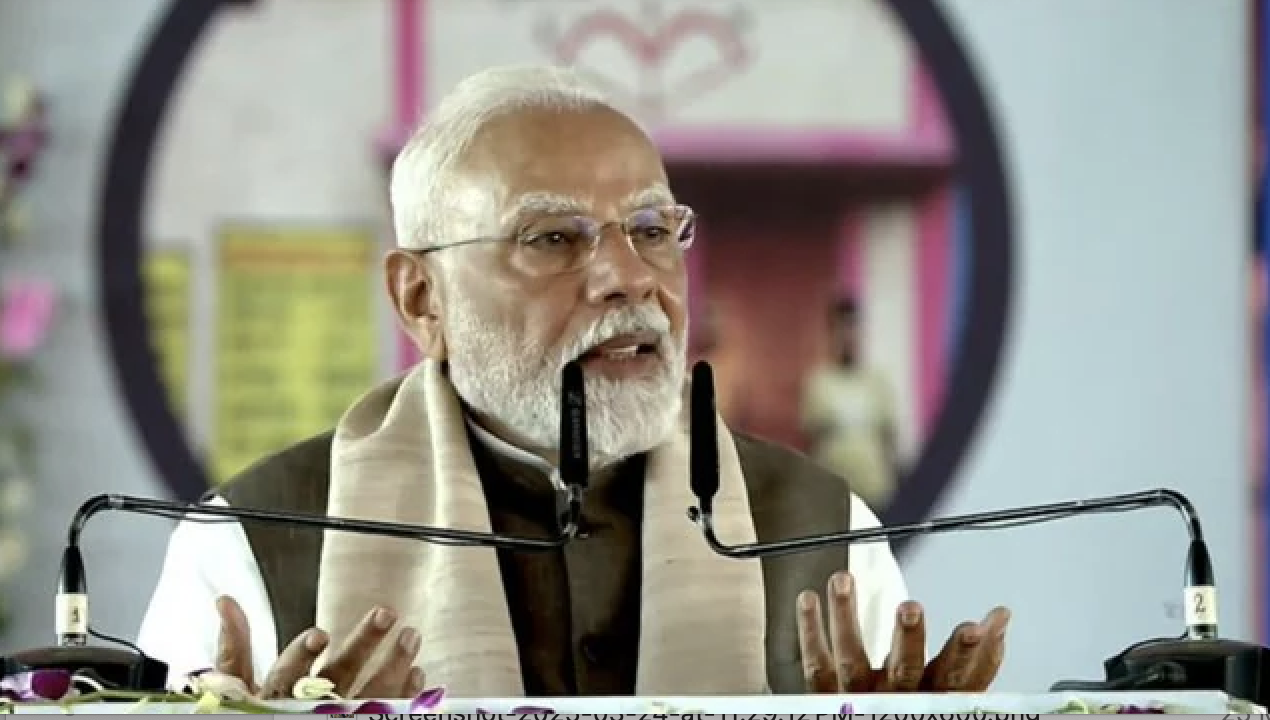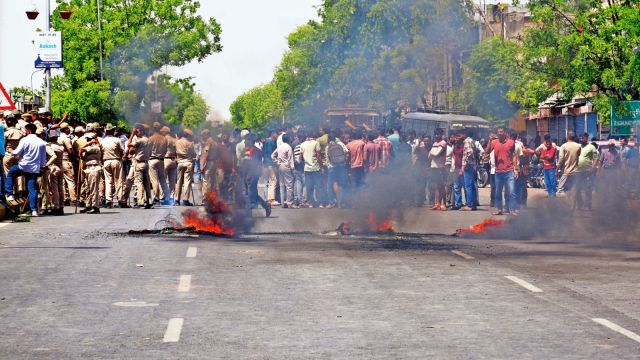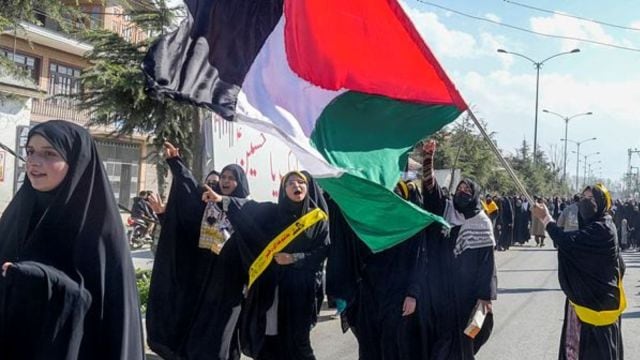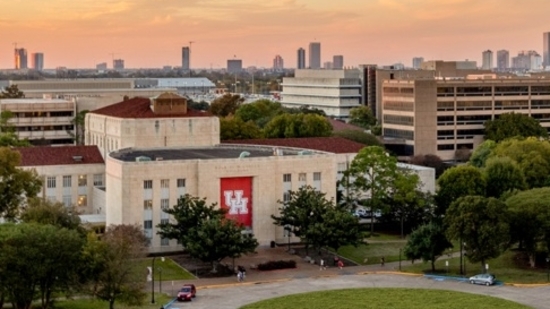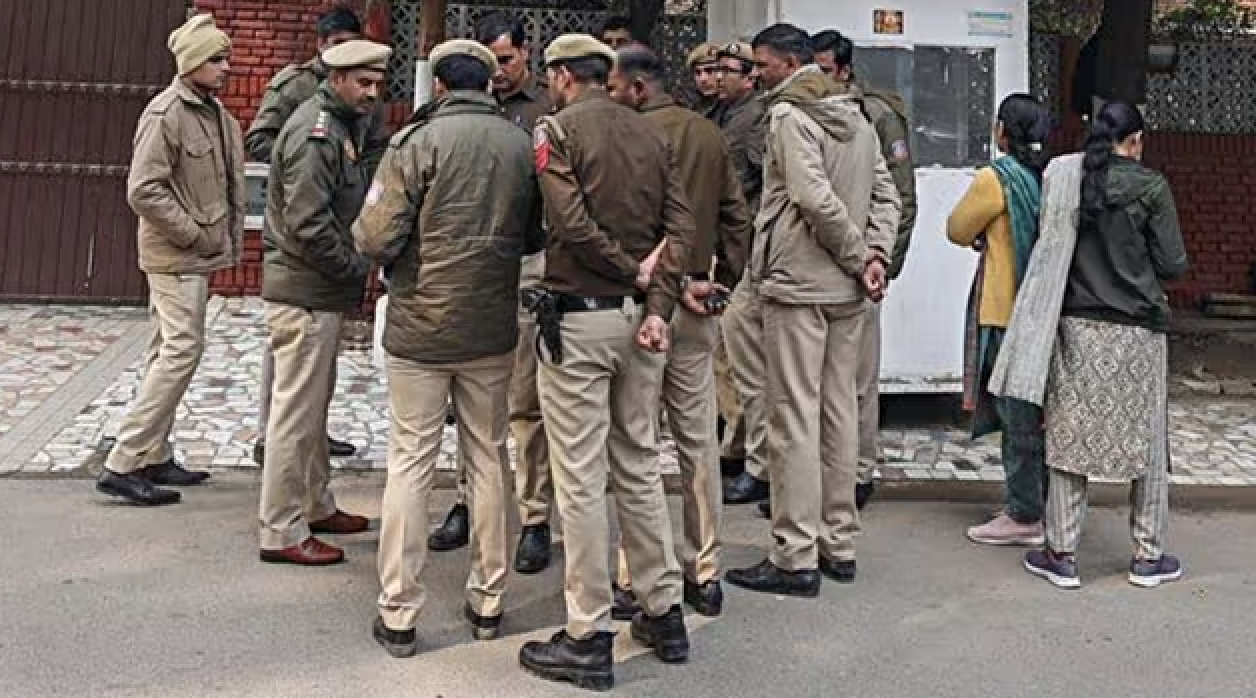
On the evening of January 19, 2025, the American Hindu Coalition — a pro–Donald Trump group whose stated mission is to “build a stronger America through Hindu Enlightenment Principles” — joined forces with several right-wing Latino organizations to host a joint Hindu-Latino inaugural ball in downtown Washington, DC. Among those who gathered in the ballroom of the swanky Mayflower Hotel, rubbing shoulders with Argentina’s far-right president Javier Milei, was Rajiv Pandit, who serves on the Board of Directors of the Hindu American Foundation (HAF) — a Washington, DC–based advocacy group that proudly professes to be the “largest and oldest education and advocacy organization and the pre-eminent voice for Hindu Americans.”
A video uploaded to YouTube by the Indian diaspora-focused news outlet India Abroad shows Pandit, alongside several other attendees, being interviewed by a bearded man in a white blazer. This man, whom Pandit addresses in the interview with the honorific “Krishnaji,” is none other than Krishna Gudipati — a local leader in the Hindu supremacist Vishwa Hindu Parishad of America (VHPA), who infamously waved an Indian flag among the crowd of rioters during the January 6 insurrection.
At first glance, this may seem surprising. As a damning 2024 report by the Savera: United Against Supremacy coalition and Political Research Associates details, HAF maintains extensive ties to the broader Hindutva (Hindu nationalist or supremacist) ecosystem in the United States. HAF’s founding leaders all cut their teeth in Hindu supremacist groups like the VHPA, and the organization continues to share key funding sources with other right-wing Hindu groups. However, as the report also highlights, HAF has historically sought to obscure these reactionary links by presenting an ostensibly “respectable” public face, couching its advocacy in the language of civil rights and multiculturalism and taking mainstream center-left positions on issues like climate change, reproductive justice, and LGBTQ rights. Given this ostensibly liberal positioning, the fact that a senior HAF leader appeared alongside a January 6 insurrectionist at Trump’s inaugural ball to enthusiastically declare that “we as Hindu Americans are very excited about the Trump 2.0 administration” may, on its face, strike many as incongruous.
Closer examination of the facts, however, reveals that the Hindutva movement and the MAGA movement are hardly strange bedfellows. In fact, Pandit’s appearance at Trump’s inaugural ball is the natural culmination of a yearslong process of convergence between the Hindu supremacist ecosystem in the United States (of which HAF is one key node) and the broader American far right — a convergence that has intensified in recent years — particularly in the run-up to and aftermath of the 2024 US presidential election, as Hindu supremacist groups have grown increasingly vocal in championing Trump as an ostensibly reliable ally of so-called “Hindu interests.”The Hindu right’s mask has begun to slip, as the movement has increasingly abandoned even a superficial commitment to political liberalism in favor of an ever more vocal alignment with the most vitriolic segments of the American right.
Still, as recent controversies over immigration policy under the new Trump administration highlight, the alliance between Hindu supremacists and the MAGA far right is a fraught one. And given that the MAGA movement’s vision for America is ultimately a project of white Christian nationalism, this shortsighted alliance poses a serious threat to the safety of all communities in the South Asian American diaspora — Hindu and non-Hindu alike.
This story was originally published in jacobin.com. Read the full story here.


